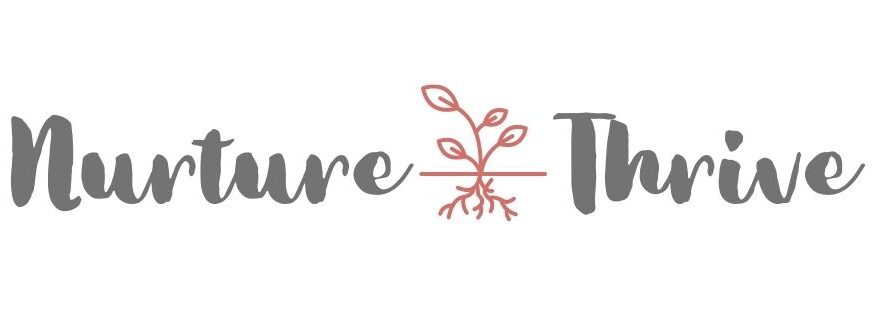It’s my sophomore year of college. I’m sitting towards the back of one of those mini-auditoriums. My best friend takes this class too and I am excited to pass notes and goof-off.
The professor starts his lecture by describing a study that examined near-death experiences. Then he went on to show how you can heal yourself with words. I’m completely captivated and my friend can’t break my attention away from the professor.

This post contains Amazon affiliate links. See my Policies for details. Photo by Doug Robichaud on Unsplash
That was the beginning of my career in psychology. By the next class, I had moved to the front row and started really listening. I was a participant in that professor’s research studies and later joined his research team. That class changed my life — and not only in terms of how it shaped my career, but how it instilled in me a lifelong love of writing.
The professor in that class was Jamie Pennebaker. He made a discovery in his research that has greatly impacted how psychologists think about dealing with emotional trauma and stress: Writing expressively about emotions can work as well as an antidepressant. But, even more than that, expressing your emotions, rather than holding them in, has a positive impact on your ability to handle stress, your physical health, and your life.
The Science of Writing to Heal
In class, Dr. Pennebaker told us about several of his studies, but two I remember clearly. They were some of his earliest works…
The first was a study with college freshman. In their first semester at college, students were randomly assigned to write about their “deepest thoughts and feelings about coming to college” or to write about an object or event in an unemotional way. Both groups wrote on their topic for 20 minutes a day for three days.
Both groups had similar GPAs in the fall semester, however, in the Spring semester, the students who wrote about their emotions on coming to college had significantly higher GPAs and fewer visits to the health center.
The second study was with people who had lost their job. One group wrote about their deepest emotions related to losing their job and the other ground described an object or event. The group who wrote about their feelings were significantly more likely to get a new job in the next few months.
The effect was so strong, that ethically they had to terminate the study and offer the treatment to the control group. Unsurprisingly, exactly zero of the participants showed up to the offered treatment after they stopped the study. The primarily middle-aged, male participants were skeptical when the researchers told them — “we have to stop the study because we found that if you write about your feelings you are significantly more likely to find a job.”
As Dr. Pennebaker explained to us in class, it sounds too good to be true: Writing about your emotions improves your life — it leads to better health, better grades, even a new job. Yet, he found evidence for it again and again.
Why does this kind of journaling work?
I think the process of writing itself helps your brain to organize complex feelings. When those feelings are not fully processed, they can take up enormous cognitive energy.
Instead of spending that energy on positive things in your life, your working memory is busy with ruminating or intrusive thoughts — the burden of anxiety. All of that anxiety leads to lower immune-functioning.
Writing out those complex feelings helps the mind and the body let go, organize, process, and resolve those feelings. Freeing up cognitive energy and reducing mental load.
Therapists know that trying to suppress or avoid emotions only makes them worse. The same can be said for physical pain. And even stress can be good for you unless you spend a lot of energy trying to avoid it.
As the tension eases, we can talk with family and friends, maybe even laugh about situations that once overwhelmed us. Then we can move on — be healthy and take the next step in life — study, find a new job, or even be a better parent.
The power of our brain and our self-energy is free to focus on what we want in life, instead of what pained us or trapped us in the past.
How to Reduce Your Mental Load With Emotion Journaling
Just do it — The Process
You only need to do this for 20 minutes a day for three days to address an unresolved emotional event in your life. It doesn’t have to be a big event. (If it is a majorly traumatic event, you may want to consult with a therapist before you get started and purchase Dr. Pennebaker’s guided journal).
- Get a kitchen timer.
- Get a plain spiral notebook or loose-leaf paper (less pressure if it isn’t a pretty journal).
- Pick a time you can write for 15-20 minutes without stopping. Do this for 3 to 4 days.
- Write with a pen and paper as opposed to typing on the computer (because you process information differently when writing versus typing).
What to Write About: How You Feel
Write about anything that is worrying you, anything that preoccupies your thoughts or dreams, or maybe something you have avoided resolving from your past.
Whatever grips your heart and makes it hard to breathe.
All of us worry. We worry about the future, about the past and especially about our kids. It can be big or small.
Like starting a new job or losing an old one. Worrying that your child may have allergies or worrying that your child has a serious illness. Getting married. Getting divorced. Moving. Aging parents. Or as we are currently experiencing, a global pandemic.
How to Get Started: Set Your Timer and Write
Set your timer for 15-20 minutes and write without thinking about grammar, style, who will read it or anything else. Just free-write. Think about it as a brain dump, or as I prefer to say it, a brain release.
Write about your emotions — your deepest thoughts, worries, and emotions. Explore those feelings. Tie them to past events and your feelings now. Think about how it has affected you and who you want to be.
Afterwards: Ritual and Re-Center
When you are done I suggest doing a ritual with those pages. Let go of them and what they represent by throwing the pieces into a lake or burning them.
Then re-center yourself. Take a few deep breaths and tap into your core self-energy. And then ready yourself to re-engage with your kids, so you can truly show up for them.
For more resources and tips, check out:
Dr. Pennebaker’s website, book Expressive Writing: Words that Heal, or his guided journal Writing to Heal.
From Introvert Dear: How to Heal Yourself from Emotional Upheaval Through Writing
Katie Hurley, LWSC Discusses strategies to help parents cope with emotions, including journaling, in her book The Happy Kid Handbook: How to Raise Joyful Children in a Stressful World

 How to Create a Play Area for Your Baby or Toddler
How to Create a Play Area for Your Baby or Toddler